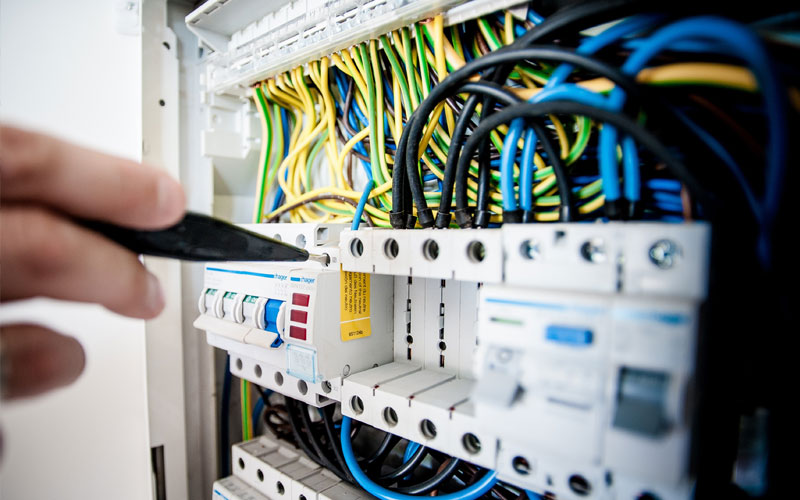Electrical Equipment and Safety: Operation, Control, Maintenance and Troubleshooting

Course Objectives
This course covers the theoretical and practical operation of common electrical equipment and components, as well as provides participants with the necessary knowledge and skills to perform electrical maintenance and troubleshooting.
Participants will gain an understanding of the relationship between voltage and current to work on and troubleshoot electrical systems. The course will also cover Direct Current (DC) and Alternating Current (AC) circuit concepts, transformers’ types of uses and their interaction in an electrical circuit, as well as the necessary knowledge to work on and fix motor control circuits.
As electrical hazards can result in serious injury to personnel that work on or around electrical equipment, the course will also focus on international safety requirements, including OSHA standards, and best practices. Participants will learn the steps needed for the prevention of electrical injuries.
By the end of the course, participants will be able to:
- Apply tools and techniques to perform electrical maintenance and troubleshooting on various types of electrical equipment
- Demonstrate a basic current, voltage and resistance relationships in electrical systems
- Describe how inductors and capacitors work and interact with electrical circuits
- Explain the theory of a generator and how a sine wave is produced
- State the difference between a power and a distribution transformer and explain the cooling methods used for transformers
- Minimize risks by identifying the hazards associated with electrical energy and by complying with safety guidelines
- Describe and apply the requirements in EN 500110, the most widely used standard for the protection of individuals from the effects of electrical hazard
Who Should Attend?
This course covers essential skills necessary for electrical maintenance personnel including electrical managers and supervisors, electrical professionals, electrical engineers, controls technicians and other professionals responsible for the operation, maintenance and safety functions. It will also be beneficial for anyone working with electrical contractors.
Course Outline
-
Electrical concepts
- Basic atomic structure
- Voltage / current / resistance
- Inductance / magnetism / capacitance
- Direct Current (DC)
- Alternating Current (AC)
-
Electrical terminology
- Understanding Volts / Amperes / Ohms
- Defining Henry / Farads
- Applying Ohm’s Law
- Kirchhoff’s Law
-
Electrical components: operation, control and maintenance
- Direct Current (DC)
- Alternating Current (AC) circuits
- Motor fundamentals
- P/N junction semi-conductors
- Rectifiers
- Transistors
- Test equipment
- Transformers
- Switchgear
- Circuit breakers
- Protective relaying
- Motor control center
-
Electrical maintenance planning
- Definition of planned maintenance
- Recommended maintenance periodicities
- Factors that affect periodicities
- Scheduling tips
-
Electrical hazards & protective measures
- Electrical terminology
- Electric shock
- Arc flash
-
Hazard assessment concerns for live electrical work
- Determining what hazards are involved
- Identifying the risks involved
- Developing measures to reduce the risks
- Implementing the measures
- Documenting the process
- Reviewing process



